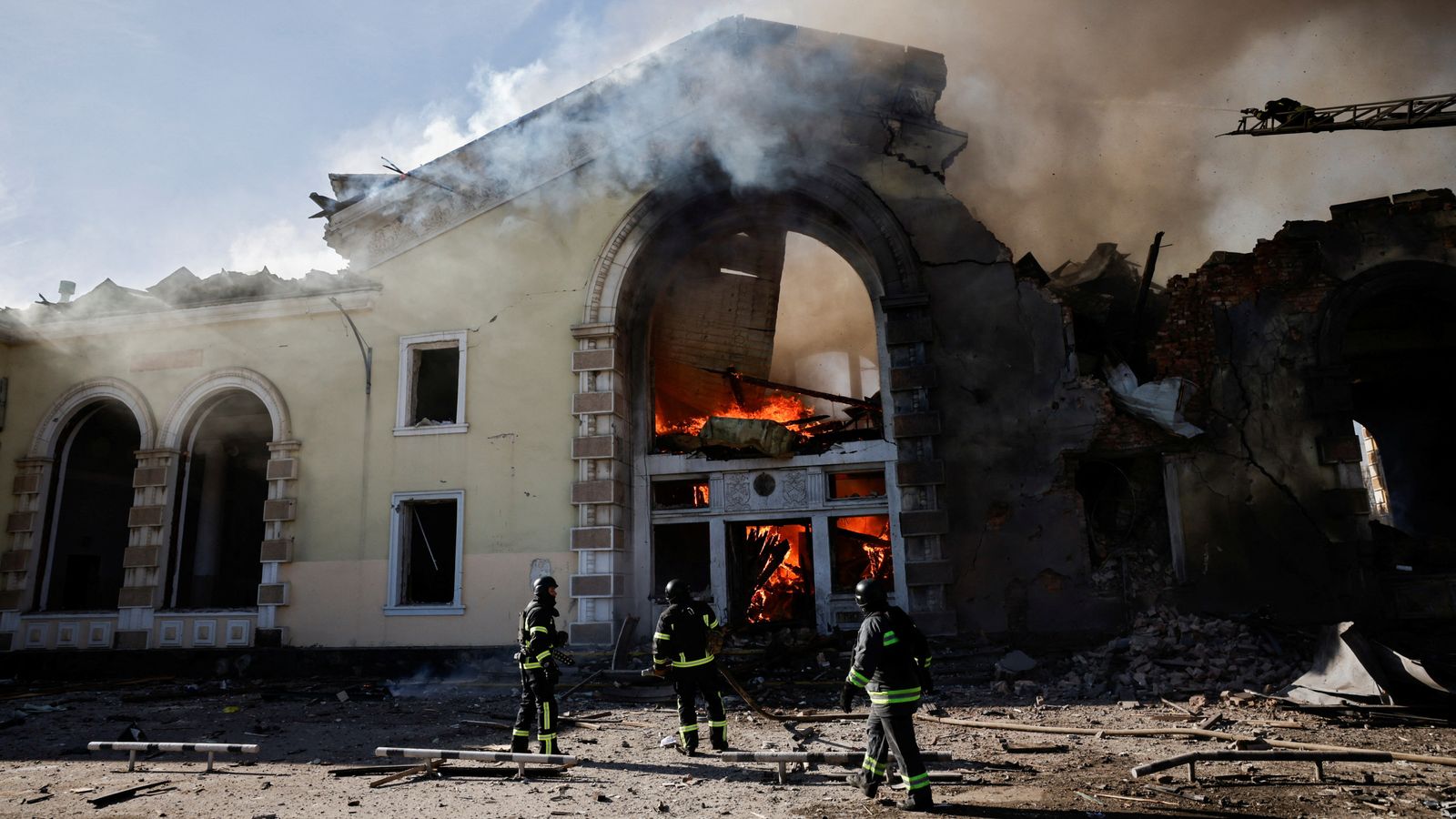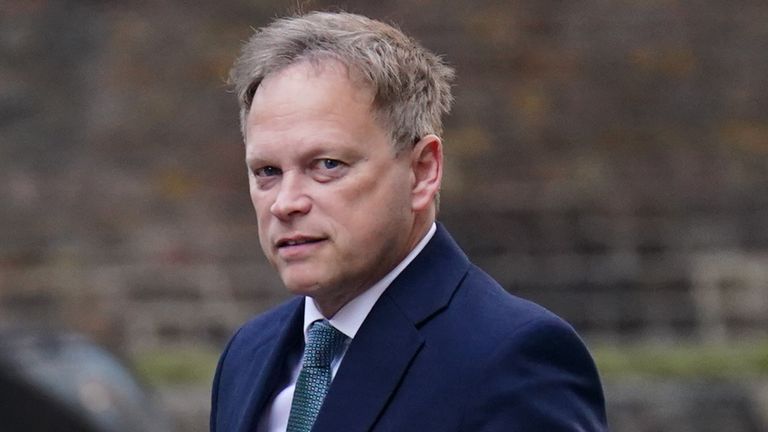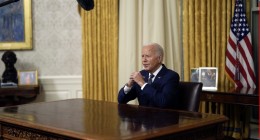Iran has supplied Russia with ballistic missiles as Moscow wages war in Ukraine, Britain’s defence secretary has signalled, accusing Tehran of being a “bad influence” in Europe.
Grant Shapps was asked in an interview with a political magazine whether he had any information on Iran‘s reported provision of surface-to-surface missiles to Russia.
The senior cabinet minister told The House publication: “I do. I can’t go into it.”
He continued: “But… whether it’s ballistic missiles, or the Shahed drones that they supplied Russia with, we’ve seen that if there’s struggle in the world, often Iran are egging it on, or helping to supply the food chain in this case.
“They are a bad influence, not just on their region, but in this case in Europe as well.”
Last month, the Reuters news agency reported that the Iranian regime had supplied around 400 missiles to Russia for the first time since Vladimir Putin launched his full-scale invasion of Ukraine in February 2022.
The munitions included many short-range ballistic missiles, with the ability to strike targets at a range of between 186 and 435 miles.
Iran has since denied the claim. Russia’s defence ministry did not respond to a request from Reuters for comment.
The Russian military has used up much of its own stockpiles of surface-to-surface missiles in waves of airstrikes against Ukraine over the past two years.
North Korea – another authoritarian ally – has started supplying missiles but stocks from Iran would also be an important boost as Russia increases its domestic production lines.
Worryingly for the West, the long-feared move marks a further strengthening of military ties between Tehran and Moscow.
Iran had previously held off from offering up its vast stockpiles of precision-guided missiles, amid the threat of further sanctions and international isolation.
Ukraine-Russia war latest: Ukraine ‘launches cyberattack on Russian defence ministry’
However, its calculations appear to have changed following the expiry last October of UN Security Council sanctions designed to curb Iran’s ballistic missile programme as part of a major 2015 nuclear agreement with world powers that has since unravelled.
Tehran has already been a key backer of Russia’s war in Ukraine, supplying Shahed attack drones, other unmanned aerial vehicles and ammunition in defiance of western warnings.
As well as Iranian activity, the defence secretary was also quizzed on a failed test-fire of a Trident missile by a Royal Navy nuclear deterrent submarine for the second time in a row.
Mr Shapps played down the incident, which happened towards the end of January off the coast of Florida, and said the UK’s actual nuclear-armed warheads would not misfire.
“I’m absolutely 100% confident that Russia understands that we have a nuclear capability, meaning that our deterrent is 100 per cent exactly that: a deterrent,” he said.
Click to subscribe to the Sky News Daily wherever you get your podcasts
As for the size of the UK armed forces after decades of cuts – another key talking point, especially ahead of the budget – Mr Shapps said he is “not against having more troops”.
But he said he was not about to refresh a major defence review that decided the current size and shape of the military, stressing: “I’m sticking by that decision.”
Instead, he appeared to favour prioritising investment in electronic warfare, space capabilities and drones, rather than boots on the ground.
“In Ukraine, we know that cyber warfare and electronic warfare: those elements have been absolutely critical to the war,” he said.
Read more:
Wake up to Russia threat, Estonia’s weekend warriors tell UK
Armed forces boss plays down conscription fears
Girl, 2, became seriously ill ‘because of mouldy military housing’
“It’s not about having another 10, 20,000 troops. It’s about having the skills and the science.”
Mr Shapps also did not see a requirement – advocated by his outgoing army chief as well as the Baltic states – to start training up British citizens in case of any future war.
“Estonia are right on the border, at the frontline essentially,” the defence secretary said.
“The UK is an island; we’re not in that situation. Nor do we see an immediate danger of invasion.”







